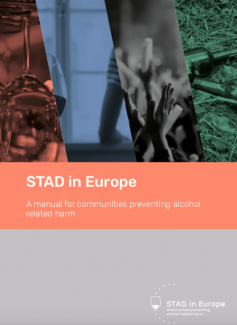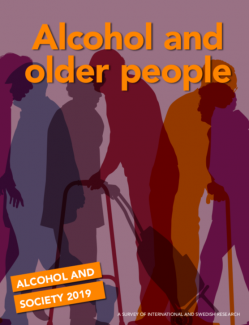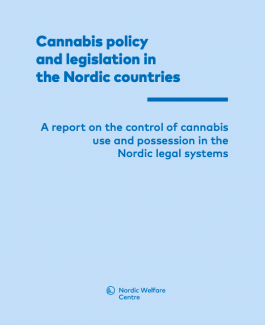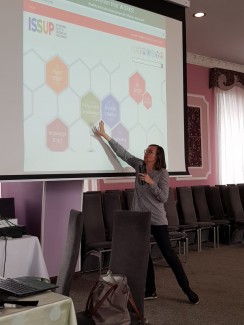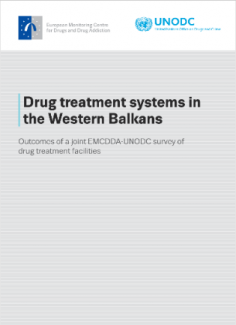Search
STAD in Europe Manual
South East Asian Fellowship Program on Drug Policy 2019
Webinar: Supporting Frontline Workers with Key Information and Resources about Ice
This webinar provides information about:
- How crystal methamphetamine affects people and communities
- Worker safety and preventing, managing and recovering from ice-related critical incidents
- The impacts of using ice with alcohol and...
Research Survey: Enhancing Drug Treatment for Migrants and Ethnic Minorities
Alcohol and Older People
Invitation to Conduct Research
The Dun Laoghaire Rathdown Drug and Alcohol Task Force, in conjunction with Southside Partnership and Dublin Rathdown Community Addiction Team, invites submissions from suitably qualified parties to conduct a research project to commence...
Calling Students- UKRI Future Leaders Fellowships
The UKRI Future Leaders Fellowship scheme (FLF) aims to support early career researchers and innovators with outstanding potential based in UK universities, registered businesses, and other research and user organisations.
It is hoped that...
A Conceptual Model for Understanding Post-Release Opioid-Related Overdose Risk
Abstract
Post-release opioid-related overdose mortality is the leading cause of death among people released from jails or prisons (PRJP). Informed by the proximate determinants framework, this paper presents the Post-Release Opioid-Related...
Perceptions about Mental Illness among General Practitioners
Abstract
Background
General practitioners (GPs) play an important role in the physical care of patients with severe mental illness, so our aim was to analyse the relationships between GPs’ sociodemographic status and worked-related...
Cues Give Clues in Relapse Prevention
More than 85% of people who give up an addictive drug begin using it again within a year. Relapse can occur following exposure to cues that are found in the environment which trigger the memory of their drug-taking experience. These cues...
Cannabis Policy and Legislation in the Nordic Countries
Cannabis is used throughout the Nordic countries, with a particular increase in use among young adults.
Markets and attitudes towards the drug have evolved, therefore there is a need to understand follow societies response to its use.
Thi...
Effectiveness Bank Additions: Therapy Relationships that Work 3: Managing the Relationship
How therapists can build and manage the recovery-promoting relationship with the client is the focus of this third bulletin recapping 16 reviews for the American Psychological Association, each featuring expert advice based on amalgamations...
Better Prevention of Drug Use, Healthy and Safe Development of Children in Belarus
Prevalence of Cognitive Impairment in Patients with Substance Use Disorder
Abstract
Introduction and Aims
Cognitive impairments in substance use disorder predict treatment outcome and are assumed to differ between substances. They often go undetected, thus the current study focuses on the prevalence of and...
Effectiveness Bank Analysis: “Game-Changer” Opiate Addiction Medication Proves Effective in US Trial
Medication of the type heralded as a possible “game-changer” by one of the UK’s leading addiction treatment clinicians and researchers proved its worth in a US placebo-controlled trial. Buprenorphine injections with effects lasting a month...
UNODC Partnership with Lions Club to Develop Personal and Social Skills of Adolescents
The UNODC/WHO Second Update Edition of the International Standards on Drug Use Prevention http://bit.ly/2D1Qua4 identifies evidence-based education on personal and social skills as one of the effective strategies to prevent drug use and...
The Results of the WHO-UNODC Substance Use Disorder Treatment Facility Survey in Serbia
In collaboration with the Ministry of Health of the Government of Serbia, UNODC supported the implementation of the UNODC/WHO substance use disorder treatment facility survey to map existing treatment capacity. The results of the survey...
Smoking Cessation Intervention for People with Severe Mental Ill Health
People who have experienced serious mental health issues are three times more likely to smoke than the wider population.
This summary, plus infographic, describes the Smoking Cessation Intervention for People with Severe Mental Ill Health...
Share the Knowledge: ISSUP members can post in the Knowledge Share – Sign in or become a member

